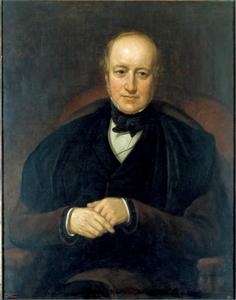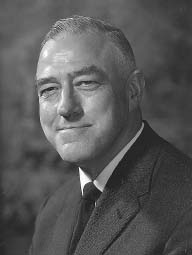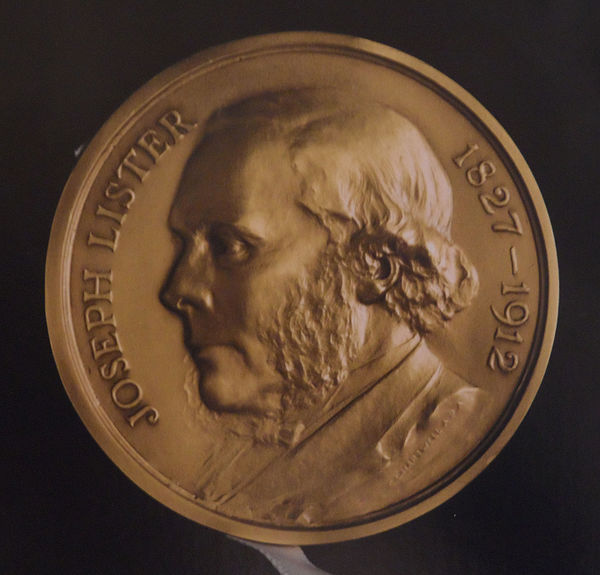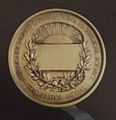
Sir Magdi Habib Yacoub, is an Egyptian-British retired professor of cardiothoracic surgery at Imperial College London, best known for his early work in repairing heart valves with surgeon Donald Ross, adapting the Ross procedure, where the diseased aortic valve is replaced with the person's own pulmonary valve, devising the arterial switch operation (ASO) in transposition of the great arteries, and establishing the heart transplantation centre at Harefield Hospital in 1980 with a heart transplant for Derrick Morris, who at the time of his death was Europe's longest-surviving heart transplant recipient. Yacoub subsequently performed the UK's first combined heart and lung transplant in 1983.

Microsurgery is a general term for surgery requiring an operating microscope. The most obvious developments have been procedures developed to allow anastomosis of successively smaller blood vessels and nerves which have allowed transfer of tissue from one part of the body to another and re-attachment of severed parts. Microsurgical techniques are utilized by several specialties today, such as: general surgery, ophthalmology, orthopedic surgery, gynecological surgery, otolaryngology, neurosurgery, oral and maxillofacial surgery, plastic surgery, podiatric surgery and pediatric surgery.

Joseph Hodgson (1788–1869) was a British physician and a well-known Quaker. He was born in Penrith, Cumberland, the son of a Birmingham merchant and educated at King Edward VI School, Birmingham, after which he was apprenticed to George Freer at Birmingham General Hospital. He then transferred to St. Bartholomew's Hospital, London.

Sir Roy Yorke Calne, FRCP, FRCS, FRS is a British surgeon and pioneer in organ transplantation.
The Association of Surgeons in Training (ASiT) is an independent professional organisation with the stated aim of promoting excellence in surgical training. It represents over 2,700 surgical trainees from all ten surgical specialities at both regional and national levels in the United Kingdom and Ireland.

Sir Michael Francis Addison Woodruff, FRS, FRSE FRCS was an English surgeon and scientist principally remembered for his research into organ transplantation. Though born in London, Woodruff spent his youth in Australia, where he earned degrees in electrical engineering and medicine. Having completed his studies shortly after the outbreak of World War II, he joined the Australian Army Medical Corps, but was soon captured by Japanese forces and imprisoned in the Changi Prison Camp. While there, he devised an ingenious method of extracting nutrients from agricultural wastes to prevent malnutrition among his fellow POWs.
Francis Daniels Moore was an American surgeon who was a pioneer in numerous experimental surgical treatments. Among his many achievements, he refined burn-treatment techniques, helped perform the world's first successful organ transplant, and accurately determined the volume of water and other nutrients in the human body using radioactive isotopes of those substances.

Evarts Ambrose Graham (1883–1957) was an American academic, physician, and surgeon.
Russell Claude Brock, Baron Brock was a leading British chest and heart surgeon and one of the pioneers of modern open-heart surgery. His achievements were recognised by a Knighthood in 1954, a Life Peerage in 1965, and a host of other awards.

Robert E. Michler is an internationally renowned heart surgeon who specializes in complex heart surgery, aortic and mitral valve repair, coronary artery bypass surgery, aneurysm surgery, and management of the failing heart. In 2017, Dr. Michler received the Vladimir Borakovsky Prize in Moscow from the Ministry of Health of the Russian Federation for “his personal contributions to the development of cardiovascular surgery”.

Harold Ellis CBE FRCS is a retired surgeon. He was Emeritus Professor of Surgery in the University of London and most recently a professor in the Department of Anatomy & Human Sciences at the King's College London School of Medicine. He qualified as a doctor from the University of Oxford in July 1948, the same month the National Health Service began. From 1950 to 1951 he undertook national service as a captain in the Royal Army Medical Corps, afterwards continuing his training as a surgical registrar in London, Sheffield and Oxford before taking up a post as senior lecturer in the University of London. In 1962, he took up the foundation chair of surgery at the Westminster Hospital, a post which he held until his retirement from practice in 1989. After a stint teaching anatomy in the University of Cambridge, he took up his present position in 1993.
Sir Peter John Morris, AC, FRS, FMedSci, FRCP, FRCS is an emeritus Nuffield professor of surgery at the University of Oxford, former President of the Royal College of Surgeons of England, founder of the Oxford Transplant Centre and director of the Centre for Evidence in Transplantation at the Royal College of Surgeons of England.
Sir Charles Frederick William Illingworth was a British surgeon who specialised in gastroenterology. Along with a range of teaching and research interests, he wrote several surgical textbooks, and played a leading role in university and medical administration.

Sir Gordon Gordon-Taylor CB KBE FRCS FACS was a British surgeon

Hans-Joachim Schäfers is a German surgeon, as well as cardiac, thoracic, and vascular surgeon and university professor. He is director of the department of Thoracic and Cardiovascular Surgery at the Saarland University Medical Center in Homburg/Saar, Germany. He is known for his activities in aortic valve repair, aortic surgery, and pulmonary endarterectomy.
Natesan Rangabashyam (1936–2013), popularly known NR, was an Indian surgical gastroenterologist and medical academic, known for his pioneering efforts in the fields of surgical gastroenterology and proctology in India. He was known to have established the department of Surgical Gastroenterology at Madras Medical College and introduced the first MCh course in Surgical Gastroenterology in India. A former honorary surgeon to the President of India, he received B. C. Roy Award, the highest Indian award in the medical category, twice. The Government of India awarded him the third highest civilian honour of the Padma Bhushan, in 2002, for his contributions to medical science.

Tobias Levitt, or Toby as he was known, was born in 1908 in South Africa and became a well known and respected figure in the international medical world, writing a standard textbook on the thyroid.
Pankaj Chandak is an Indian-born British surgeon who made innovations in the use of 3D printing in paediatric kidney transplant surgery. He has also undertaken work in education, public engagement, presenting demonstrations, and acting in The Crown television series. He graduated from Guy's and St Thomas' University of London medical school and was an anatomy demonstrator under Professor Harold Ellis CBE.
Sir Andrew Patrick McEwen Forrest FRCS FRCPEd FRSE is a retired Scottish surgeon.

Wei Ping Andrew Lee is a Chinese-American hand and reconstructive surgeon. He is presently the Dean of the University of Texas Southwestern Medical School and Executive Vice President for Academic Affairs and Provost of UT Southwestern Medical Center. Lee’s career has been dedicated to translational research on immune modulation for vascularized composite allotransplantation (VCA) and to the implementation of protocols to minimize immunosuppression in hand transplant and other VCA programs.















